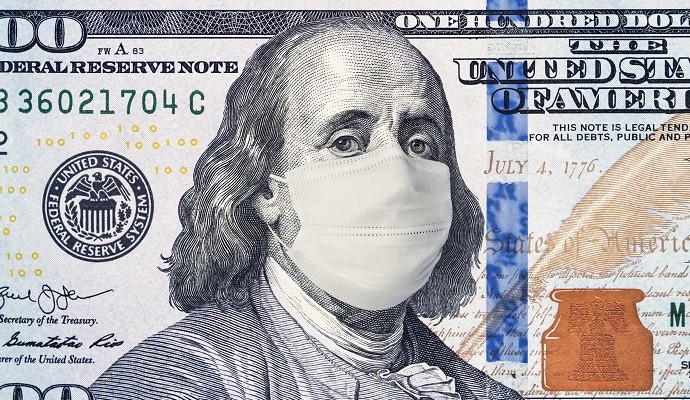COVID-19 Pandemic Did Not Impact Medical Debt Among Americans
Despite causing job and insurance losses, the COVID-19 pandemic did not negatively impact medical debt, likely due to temporary premium subsidies and a decline in elective healthcare.

Source: Getty Images
- The COVID-19 pandemic and the accompanying financial challenges were not associated with any changes in medical debt, according to a study published in JAMA Health Forum.
When the pandemic hit, millions of Americans lost their jobs, with many losing their employer-sponsored health insurance.
Researchers analyzed trends in medical debt between January 2018 to September 2021 among 37 million people to determine if these challenges impacted past-due medical bill activity. They quantified medical debt in collections using credit reports from the credit reporting agency TransUnion.
The study then compared medical debt trends to measures of pandemic severity, including COVID-19 infection and vaccination rates, unemployment rates, and consumer spending.
Researchers found that both medical and nonmedical debt followed the downward trends that consumers saw before the pandemic.
Between the first and second quarters of 2020, the amount of medical debt in collections declined. Medical debt rose slightly during the last two quarters of the year when COVID-19 infection rates peaked but fell again during quarter one and quarter two of 2021. COVID-19 infection rates were high again in the third quarter of 2021, but medical debt declined.
The correlation rates were not statistically significant for COVID-19 infection rates (0.037), COVID-19 vaccination rates (-0.054), unemployment rate changes (0.021), or consumer spending changes (0.018).
Additionally, the study found that the amount of medical debt in collections dropped in 2021 for individuals of all incomes.
The results suggest that any increases in medical debt were offset by the decline in elective medical procedures and new healthcare policies implemented during the pandemic.
For example, policymakers expanded Medicaid eligibility during the public health emergency and introduced significant premium subsidies for families and individuals on the Affordable Care Act (ACA) marketplace.
Researchers noted that their study findings might be limited as they only looked at medical debts reported to TransUnion and did not include debt that was not reported to credit agencies.
Including medical debt on credit reports can make it difficult for individuals to find employment, secure housing, and access healthcare services. Still, consumer credit reports disclosed around $88 billion in past-due medical bills in 2021.
Three credit reporting agencies, including TransUnion, announced plans in March 2022 to remove 70 percent of medical collection debt tradelines from consumer credit reports and stop including paid medical collection debt on reports.
In addition, the agencies will stop including past-due medical debts under $500 on consumer credit reports starting in the first half of 2023.
Reduced medical debt was perhaps one of the only positive impacts of the pandemic on consumers. A report from Urban Institute reaffirmed that fewer adults faced medical debt challenges during the pandemic.
Between March 2019 and April 2021, the share of adults reporting medical debt fell from 23.6 percent to 16.8 percent. However, racial disparities persisted in 2021 as Black and Hispanic/Latino adults were more likely to report medical debt and problems paying medical bills than White adults.
